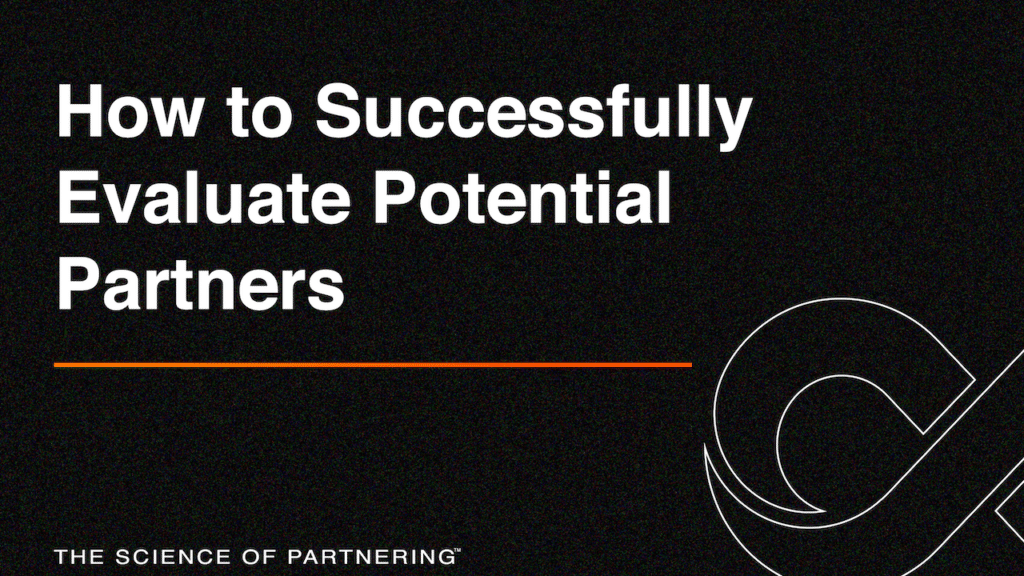The full partnership success equation is vast and complicated. There seems to be pitfalls and landmines around every corner from strategy development, to candidate identification, to contracting, then purpetual management. One of the early critical steps that is commonly misplayed is the objective due diligence activities for each potential partner. Regardless if you’re seeking new partners for channel sales-distribution-implementation or new tech development, partner selection is obviously critical to long-term success.
Your evaluation of a potential partner and their evaluation of your company and the partnering opportunity commences the moment you first say, “Hello.” As conversations continue, your evaluation moves from informal to formal, so documentation becomes increasingly critical. There are a number of factors to consider as you evaluate partner candidates. Some factors will consider general business effectiveness, such as cultural fit and financial health, while other criteria are opportunity specific, such as the use of technology and/or distribution capabilities.
During the courting process, capture your conversations and continuously identify strengths and weaknesses that you perceive within each partner candidate. For every critical strength and weakness that you perceive, validate your assessment during future conversations. Before it becomes “etched in stone,” have a candid conversation with each prospective partner and afford him/her an opportunity to validate or refute your beliefs, prior to making any final decisions.
As you start to formally evaluate a partner candidate’s fit for your opportunity, consider using the PARTNERNOMICS® – Candidate Scoring Tool. This powerful tool offers 10 “Standard Criteria” for which you can objectively evaluate a candidate’s fit. The tool also allows its users to add opportunity specific criteria, such as technical or industry know-how or market experience that will accelerate your partnership’s success. If you believe that a particular factor is critical to your initiative’s future success, include it.
For each due diligence criteria, grade each partner candidate on a scale from 0-10, where 10 is perfect. Address any “show-stopper” criterian as soon as you start the evaluation process. For example, your partnering initiative may require that your partner offer 24x7x365 tech support. So, if they don’t check this box, they are out!
10 “Standard Criteria” for Evaluating Partner Candidates
- Alignment of Mission and Core Values (Culture)
- Alignment of Partnership Success Pyramid
- Alignment of Partnering Goals (Intended Outcomes)
- Quality of Company’s Solutions
- Scale and Capacity of Production
- Track Record of Delivering Results
- Company’s Relationships & Brand (Network)
- Financial Stability & Health
- Company’s Profitability
- Overall Contractual Terms
Account for possibilities of selection/grading bias. If your team has multiple team members scoring partner candidates you must:
1) Assign specific criteria to a team member and have him/her be responsible for grading ALL candidates on those criteria; or
2) Ensure all team members have an acceptable level of knowledge about each candidate and then engage in a group discussion where every team member weighs in on each criteria.


